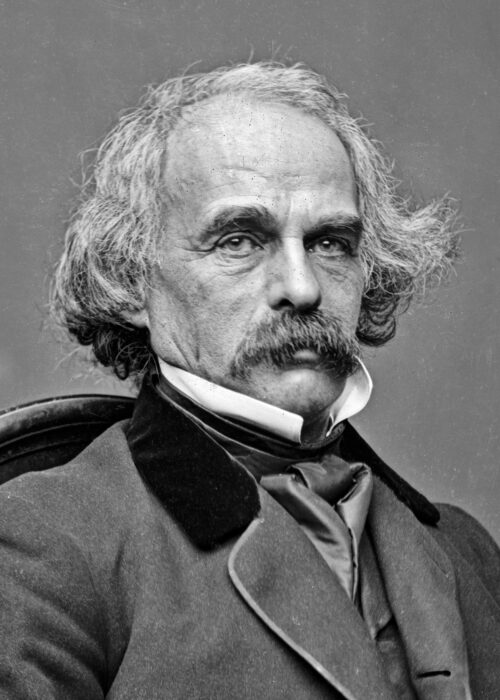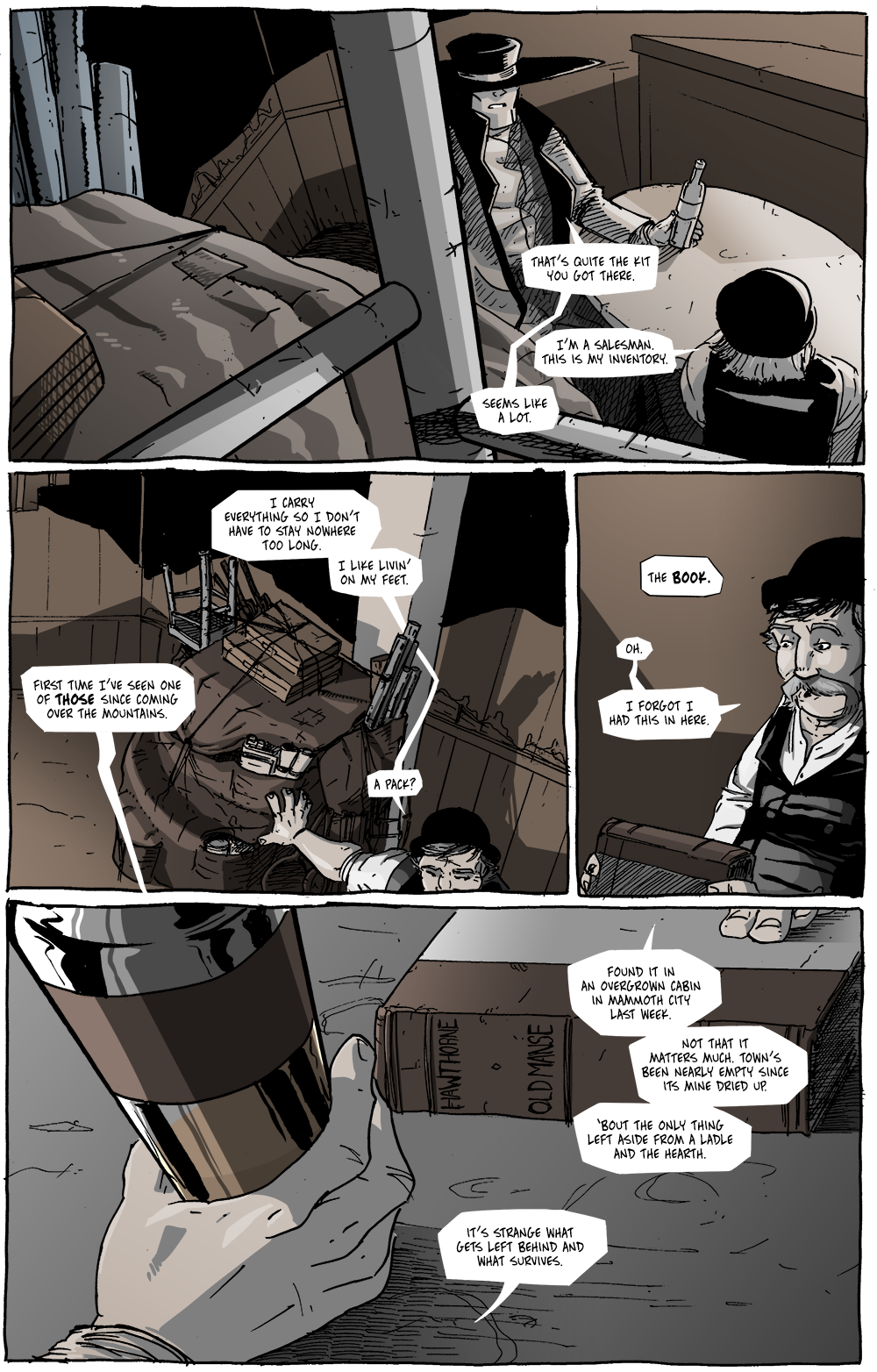What Survives
This is where I get serious and bring in my English major background.
I agonized over what book Geoff would be handing over to Long John, to the point where I did my best to track down sales records of books at the time.
To be clear, the book is Mosses from an Old Manse by Nathaniel Hawthorne, a collection of allegorical short stories––many of which had been previously published––that proved quite important not only for Hawthorne’s career but for the establishment of early American literature.
More importantly, it’s from the east coast, so its appearance this far west lets you know that its deliberate (keep this in mind for Wednesday’s page); a piece of the new old world brought out to the new new world.

Nathaniel Hawthorne, author of the stories in Mosses From an Old Manse, is a serious dude. Therefore, this scene must also be quite serious.
In the interest of full disclosure, it took me a long time to title this chapter, landing on “Dead Words” in a fit of luck. For awhile longer than it should have been, the the chapter was tentatively titled “Goodman” as an homage to a story in Old Manse called “Young Goodman Brown,” one of Hawthorne’s most popular stories (Geoff’s last name was originally “Goodman”, but I thought it was a bit on the nose). Like most of his work, “Young Goodman Brown” focuses on the static created by early American Puritanical culture and beliefs, but is actually a surreal tale of lost faith (not only religious but also humanistic), which is kind of where Long John is right now, albeit in a much less moral quandary.
It’s a story I read multiple times, especially during my undergraduate degree, and the surrealism of the story––and how it painted the themes––really stuck with me. It asks the questions that probe the inherent evil of humanity, which is not necessarily something I agree with but in the low state Long John is in he has ostensibly lost all hope except for the promise of the next drink at a bar that asks no questions. Is purgatory its own hell if you choose to settle there?
I may be revealing too much––because of how much these themes and ideas play later into the chapter––but the investigation into Long John’s character through the simple introduction of a popular book of the day proved too enticing to ignore, which is why I very much love this chapter overall.



Discussion ¬